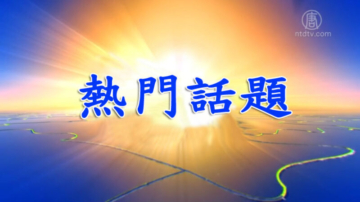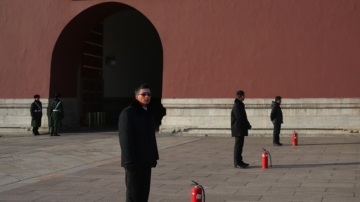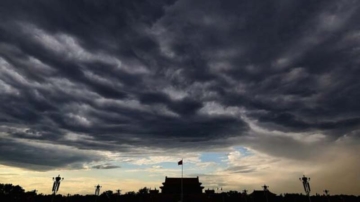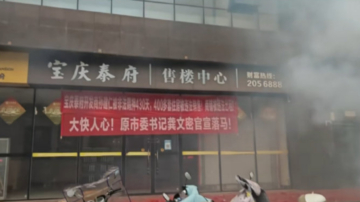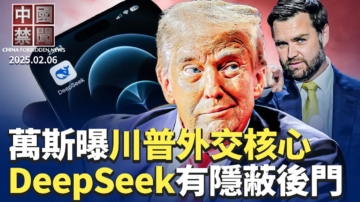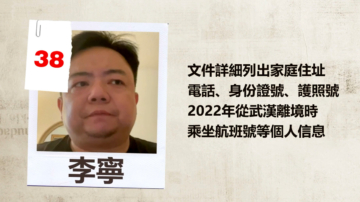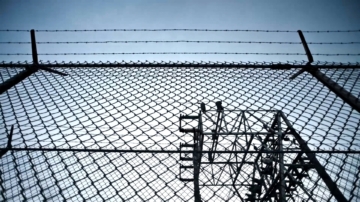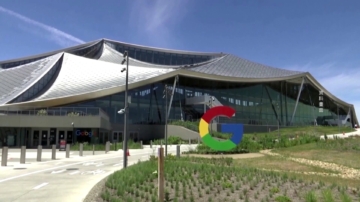【新唐人2013年06月27日訊】中國大陸金融界爆發「錢荒」,且不斷加劇。中國人民銀行(央行)曾一度表示不會注資救市,但隨著股市大跌、觸發經濟恐慌,央行25號宣佈,已經開始對一些金融機構提供資金支持。那麼,央行為甚麼會轉變態度呢?下面我們就來聽聽專家的分析。
中國人民銀行在官網發表聲明說:已經向一些金融機構提供流動性資金支持,以穩定貨幣市場利率。
在大陸金融界爆發「錢荒」之後,銀行間的隔夜拆借資金不斷攀高,最高時達到13%。6月24號,中國多個地方的工商銀行更是發生民眾無法取款的現象。
在此之前,央行一直堅持不會向金融機構「放水」,不替各銀行買單。
對此,美國「南卡羅萊納大學」艾肯商學院教授謝田分析,中共國務院總理李克強等主管經濟的官員,可能不願繼續以前大搞基建的政策,試圖從宏觀上進行調控冷卻,因此「錢荒」出現的時候他們不想注資。
美國南卡羅萊納大學艾肯商學院教授謝田:「但現在看來,錢荒對中國經濟、中國社會、投資者的信心、和國際社會對中國經濟的懷疑,整個影響可能太大,它現在又不得不注入部分資金。」
謝田同時指出,如果大陸當局繼續增發貨幣大規模注資的話,必然會加劇通貨膨脹和房地產泡沫,中國經濟問題會越來越大。但如果央行不注資,也會造成經濟恐慌。
謝田認為,中國經濟已經陷入進退維谷的兩難境地,但從根本上來看,還是中共既得利益集團和老百姓利益如何分配的問題。
美國資深經濟分析師經濟學家簡天倫:「最近因為中央在打壓貪污腐敗,有很多高官把錢移到海外。所以有些銀行賬面上可能很多錢,但實際上並不一定有那麼多錢。」
據了解,大陸的銀行,一直以來就是充當中共政府「錢袋子」的角色。而長期操控金融領域的江派利益集團,更是通過各種手段將銀行資產掏空佔為己有,反過來,銀行又通過增發鈔票讓老百姓買單。
中共「十八大」之後,中共新領導人習近平、李克強、王岐山等人開始高調反腐,尤其針對金融界。與此同時,中共貪官們一方面把大量資金轉移海外,一方面對反腐進行抵制。
「中國人民大學」行政管理學系主任毛壽龍教授也對《新唐人》表示,大陸金融泡沫、地方債佔用大量資金、短期存款被用於投資等問題,造成資金緊張,而利益集團則以這些理由來進行操作、逼迫央行放款。
中國人民大學行政管理學系主任毛壽龍:「這幾個原因使他們有操作的籌碼。中央就去賭這個事情,就是說你能夠把存量消化掉、把增量也消化掉。通過盤活存量、改變增量的結構,希望銀行自己來解決這個問題。」
受「錢荒」影響,大陸滬深股市24號大跌,25號則先是大跌,而後因央行聲明注資而回升,呈現V字形的大幅波動。
北京「天則經濟研究所」副所長馮興元表示,央行這次「放水」雖然緩解了目前的「錢荒」,但實際上大陸已經發生小規模的金融危機。
北京天則經濟研究所副所長馮興元:「這種情況下,我們再搞大規模的城鎮化,通過大規模的增加財政支出已經不行了,我們跟08年情況完全不一樣。」
2008年全球金融危機時期,中共曾經推出「4萬億」投資計劃,來刺激經濟發展,但造成了重復投資、房地產泡沫和物價急劇上升等惡果,而這些惡果目前還在不斷顯現和加劇。
採訪/易如 編輯/李謙 後製/黎安安
Central Bank Injects Cash to Ease “Money Shortage”
Facing a heat-up of the “money shortage”,
China’s central bank at first refused cash injection.
However, the stock market’s fall and
economic panic ensued.
On June 25, the central bank announced that liquidity
support had begun, towards some financial institutions.
Why has the central bank changed its attitude?
Let’s see what the experts say.
On its official website, the People's Bank of China has said
that liquidity has been offered to some financial institutions.
This is allegedly done to stabilize money-market rates.
China’s “money shortage” has pushed up
interbank call-loan rate, up to 13% at the peak.
On June 24, citizens were even unable to withdraw money
from agencies of the Industrial & Commercial Bank of China.
Prior to this development, China’s central bank had refused
to inject cash into the financial system.
Xie Tian, professor at Aiken Business School,
University of South Carolina, offers his analysis.
Xie says premier Li Keqiang and other officials in charge
of economy , may want to discontinue the previous policy.
That is, to stop the focus on infrastructure building.
Li Keqiang and his team may be trying to exercise
a macro-control to cool things down.
Xie Tian speculates that this is why the central bank
failed to inject money earlier on.
Xie Tian: “But now it seems that the money shortage
has caused too negative an effect, on China’s economy,
society, and investor confidence.
It has also aroused the world’s suspicions
over China’s economy.
So, because of this, the central bank
has to inject some funds.”
Xie Tian warns that if the Chinese Communist Party
authorities inject money by printing more paper money,
that will surely fuel inflation and burst the real estate bubble.
This will compound China’s economic problem.
However, if the central bank doesn’t offer cash aid,
it will cause economic panic, Xie Tian remarks.
So far, China’s leaders have been caught in a dilemma,
according to Xie Tian. He points out the core of the problem.
This is the issue of profit sharing between CCP
privileged groups , and ordinary Chinese citizens.
(Senior economist, USA) Jian Tianlun:
“The CCP has launched an anti-corruption drive.
This has caused many senior officials to
transfer their assets abroad.
So some banks in fact haven’t so much money
as the figures shown on their books would suggest.”
China’s banks have always been known as
“money bags” for CCP authorities.
The CCP faction under Jiang Zemin has
long controlled China’s financing sector.
Jiang’s faction members have used all means
to empty banks and pocket the assets.
Whilst the CCP authorities have filled the hole that is left
by printing more money.
After the 18th Party Congress, the CCP’s new
leadership proclaimed it would combat corruption,
especially in the financial sector.
Yet CCP officials have rushed to transfer
their money abroad, so as to resist the anti-graft drive.
Mao Shoulong, professor at Renmin University of China,
tells NTD about more information.
The current money shortage has multiple causes, he says.
These include a financial bubble,
loans being turned into local fiscal debts,
another cause is short-term deposits being used
for investment.
The interest groups have used these as pretexts
to press the central bank to input liquidity.
Mao Shoulong: “They’ve used these reasons to bargain.
So central authorities have gambled on
the injection of money.
But the banks are required to digest currency inventory
and the increment.
The central bank tries to make efficient use of banks’
currency inventory, and to control the injected liquidity.”
Under the “money shortage”, Shanghai and Shenzhen
stock markets fell on June 24.
On June 25, the stock market opened with a drop, and
later saw a V-shaped rebound with a cash injection.
Feng Xingyuan, deputy director of Beijing-based
Unirule Institute of Economics, comments.
The central bank’s cash injection has eased
the money shortage, he says.
Yet, a small financial crisis did happen in China.
Feng Xingyuan: “In this case, if we still carry out
large-scale urbanization to boost fiscal expenditure,
it won’t work anymore.
The situation today is different from what it was in 2008.”
In 2008 the CCP authorities launched a 4-Trillion-yuan
stimulus plan to conquer a global financial crisis.
The scheme finally caused overlapping investment,
a real estate bubble and a sharp rise in prices.
Until today, these disastrous effects still exist
and they are becoming worse.
中國人民銀行在官網發表聲明說:已經向一些金融機構提供流動性資金支持,以穩定貨幣市場利率。
在大陸金融界爆發「錢荒」之後,銀行間的隔夜拆借資金不斷攀高,最高時達到13%。6月24號,中國多個地方的工商銀行更是發生民眾無法取款的現象。
在此之前,央行一直堅持不會向金融機構「放水」,不替各銀行買單。
對此,美國「南卡羅萊納大學」艾肯商學院教授謝田分析,中共國務院總理李克強等主管經濟的官員,可能不願繼續以前大搞基建的政策,試圖從宏觀上進行調控冷卻,因此「錢荒」出現的時候他們不想注資。
美國南卡羅萊納大學艾肯商學院教授謝田:「但現在看來,錢荒對中國經濟、中國社會、投資者的信心、和國際社會對中國經濟的懷疑,整個影響可能太大,它現在又不得不注入部分資金。」
謝田同時指出,如果大陸當局繼續增發貨幣大規模注資的話,必然會加劇通貨膨脹和房地產泡沫,中國經濟問題會越來越大。但如果央行不注資,也會造成經濟恐慌。
謝田認為,中國經濟已經陷入進退維谷的兩難境地,但從根本上來看,還是中共既得利益集團和老百姓利益如何分配的問題。
美國資深經濟分析師經濟學家簡天倫:「最近因為中央在打壓貪污腐敗,有很多高官把錢移到海外。所以有些銀行賬面上可能很多錢,但實際上並不一定有那麼多錢。」
據了解,大陸的銀行,一直以來就是充當中共政府「錢袋子」的角色。而長期操控金融領域的江派利益集團,更是通過各種手段將銀行資產掏空佔為己有,反過來,銀行又通過增發鈔票讓老百姓買單。
中共「十八大」之後,中共新領導人習近平、李克強、王岐山等人開始高調反腐,尤其針對金融界。與此同時,中共貪官們一方面把大量資金轉移海外,一方面對反腐進行抵制。
「中國人民大學」行政管理學系主任毛壽龍教授也對《新唐人》表示,大陸金融泡沫、地方債佔用大量資金、短期存款被用於投資等問題,造成資金緊張,而利益集團則以這些理由來進行操作、逼迫央行放款。
中國人民大學行政管理學系主任毛壽龍:「這幾個原因使他們有操作的籌碼。中央就去賭這個事情,就是說你能夠把存量消化掉、把增量也消化掉。通過盤活存量、改變增量的結構,希望銀行自己來解決這個問題。」
受「錢荒」影響,大陸滬深股市24號大跌,25號則先是大跌,而後因央行聲明注資而回升,呈現V字形的大幅波動。
北京「天則經濟研究所」副所長馮興元表示,央行這次「放水」雖然緩解了目前的「錢荒」,但實際上大陸已經發生小規模的金融危機。
北京天則經濟研究所副所長馮興元:「這種情況下,我們再搞大規模的城鎮化,通過大規模的增加財政支出已經不行了,我們跟08年情況完全不一樣。」
2008年全球金融危機時期,中共曾經推出「4萬億」投資計劃,來刺激經濟發展,但造成了重復投資、房地產泡沫和物價急劇上升等惡果,而這些惡果目前還在不斷顯現和加劇。
採訪/易如 編輯/李謙 後製/黎安安
Central Bank Injects Cash to Ease “Money Shortage”
Facing a heat-up of the “money shortage”,
China’s central bank at first refused cash injection.
However, the stock market’s fall and
economic panic ensued.
On June 25, the central bank announced that liquidity
support had begun, towards some financial institutions.
Why has the central bank changed its attitude?
Let’s see what the experts say.
On its official website, the People's Bank of China has said
that liquidity has been offered to some financial institutions.
This is allegedly done to stabilize money-market rates.
China’s “money shortage” has pushed up
interbank call-loan rate, up to 13% at the peak.
On June 24, citizens were even unable to withdraw money
from agencies of the Industrial & Commercial Bank of China.
Prior to this development, China’s central bank had refused
to inject cash into the financial system.
Xie Tian, professor at Aiken Business School,
University of South Carolina, offers his analysis.
Xie says premier Li Keqiang and other officials in charge
of economy , may want to discontinue the previous policy.
That is, to stop the focus on infrastructure building.
Li Keqiang and his team may be trying to exercise
a macro-control to cool things down.
Xie Tian speculates that this is why the central bank
failed to inject money earlier on.
Xie Tian: “But now it seems that the money shortage
has caused too negative an effect, on China’s economy,
society, and investor confidence.
It has also aroused the world’s suspicions
over China’s economy.
So, because of this, the central bank
has to inject some funds.”
Xie Tian warns that if the Chinese Communist Party
authorities inject money by printing more paper money,
that will surely fuel inflation and burst the real estate bubble.
This will compound China’s economic problem.
However, if the central bank doesn’t offer cash aid,
it will cause economic panic, Xie Tian remarks.
So far, China’s leaders have been caught in a dilemma,
according to Xie Tian. He points out the core of the problem.
This is the issue of profit sharing between CCP
privileged groups , and ordinary Chinese citizens.
(Senior economist, USA) Jian Tianlun:
“The CCP has launched an anti-corruption drive.
This has caused many senior officials to
transfer their assets abroad.
So some banks in fact haven’t so much money
as the figures shown on their books would suggest.”
China’s banks have always been known as
“money bags” for CCP authorities.
The CCP faction under Jiang Zemin has
long controlled China’s financing sector.
Jiang’s faction members have used all means
to empty banks and pocket the assets.
Whilst the CCP authorities have filled the hole that is left
by printing more money.
After the 18th Party Congress, the CCP’s new
leadership proclaimed it would combat corruption,
especially in the financial sector.
Yet CCP officials have rushed to transfer
their money abroad, so as to resist the anti-graft drive.
Mao Shoulong, professor at Renmin University of China,
tells NTD about more information.
The current money shortage has multiple causes, he says.
These include a financial bubble,
loans being turned into local fiscal debts,
another cause is short-term deposits being used
for investment.
The interest groups have used these as pretexts
to press the central bank to input liquidity.
Mao Shoulong: “They’ve used these reasons to bargain.
So central authorities have gambled on
the injection of money.
But the banks are required to digest currency inventory
and the increment.
The central bank tries to make efficient use of banks’
currency inventory, and to control the injected liquidity.”
Under the “money shortage”, Shanghai and Shenzhen
stock markets fell on June 24.
On June 25, the stock market opened with a drop, and
later saw a V-shaped rebound with a cash injection.
Feng Xingyuan, deputy director of Beijing-based
Unirule Institute of Economics, comments.
The central bank’s cash injection has eased
the money shortage, he says.
Yet, a small financial crisis did happen in China.
Feng Xingyuan: “In this case, if we still carry out
large-scale urbanization to boost fiscal expenditure,
it won’t work anymore.
The situation today is different from what it was in 2008.”
In 2008 the CCP authorities launched a 4-Trillion-yuan
stimulus plan to conquer a global financial crisis.
The scheme finally caused overlapping investment,
a real estate bubble and a sharp rise in prices.
Until today, these disastrous effects still exist
and they are becoming worse.

